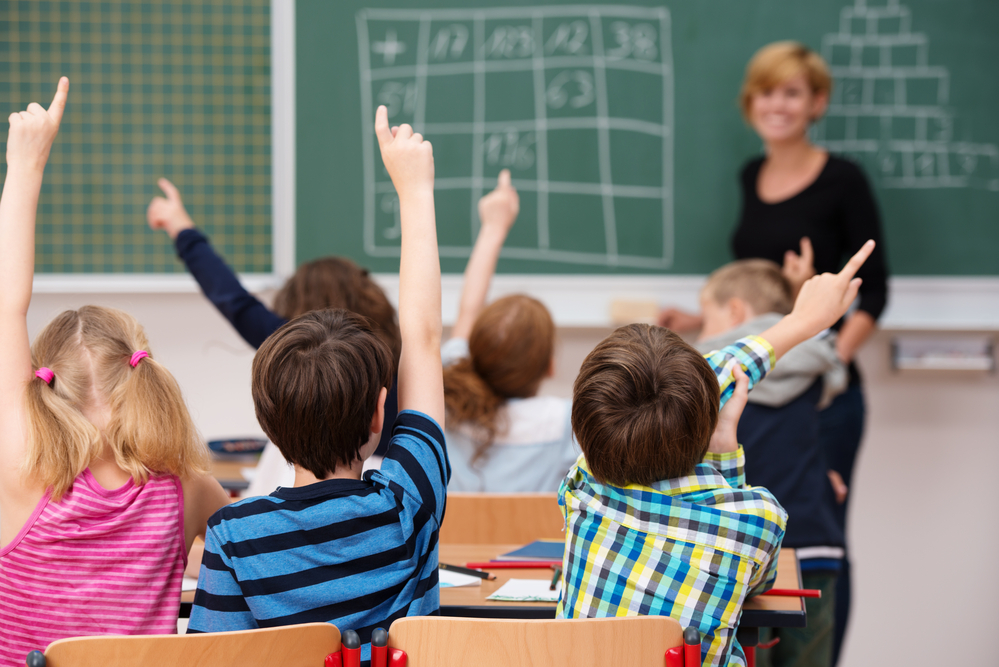
From learning how to take turns to putting lessons into practice, toys, crafts, and games can make a huge impact in a child's performance in school. Toys teach skills, allow creativity, and foster exploration in a fun and exciting way. Discover how playtime fun can work wonders for a student's physical, mental, and even emotional development both at home and while in school.
How Toys Improve Performance in School
Children learn many things through play, and toys enable them to improve multiple skills. These skills don’t necessarily have to be academic. In fact, playing with toys in school gives students a chance to go beyond the curriculum to hone their social skills, improve their ability to communicate, and build the confidence to try new things.
1) Building Confidence
Children are naturally curious. So when they see a new toy, they are naturally inclined to try it out. Giving them space to play independently with toys makes them confident, and they are further encouraged to expound on that confidence in unique ways. This is especially the case when the student is allowed the opportunity to play with higher-level rules where he or she must create the storyline or the rules as playtime continues. For example, by bringing their stories to life through role-play scenarios with action figures and dolls or exploring science concepts through a DIY crafting kit, students learn what works and what interesting things can come from mistakes. Such lessons lead to the confidence to test more stories and advanced science concepts.
2) Providing Opportunities to Practice Communication Skills
Children learn to socialize and communicate better when they play with friends. When two kids get together to play, they are able to work on their language and empathy skills which in turn helps them communicate with people of all ages, including their teachers.
Furthermore, playing together and sharing a toy enables the children to play with open minds. Such methods as imaginative and pretend play offers an opportunity to see what happens when acting out a scene the student encountered in the life or an entirely fictional soon-to-be best seller he or she just created that can be communicated with a group of students in a collaborative way. Plus, adults can engage with the child in play to talk about those real-world situations in a non-threatening way or discover how much the student has learned about plot development from the pretend play storyline.
3) Develops Trust in Teachers and Classmates
Naturally, kids are able to trust those teachers and classmates more who join in and play with them. Developing trust is very important for children. It helps them feel safe and enables them to feel comfortable communicating with their peers and teachers. When teachers and classmates play with toys, it brings them together and improves their relationships. To that point, children also tend to trust those grown-ups more, who take the time to engage with them in play at home as well.
4) Makes Learning Fun
When little kids play, it's not just an activity for leisure. They are learning and improving their physical and cognitive abilities. To make each moment at school count, it is essential to incorporate toys, games, and different DIY crafting activities into the lesson planning to make learning fun and keep students engaged. This is especially important for younger grades as it is essential to maintain their focus and give them toys that can help them gain a new understanding of science, art, or story-creation.
5) Improves Brain Development
When kids play with toys, they are improving their cognitive abilities. Toys help them process information by identifying problems and finding a solution for them. They help students figure out cause and effect and symbolic thinking. In fact, toys are a creative outlet, and educational toys are an excellent way to build upon a child's learning ability and brain development. Moreover, it is crucial to help children develop their fine and gross motor skills. There are a large number of toys that can enhance children's motor skills that later translate into critical skills like writing.
The Take Away
Toys, games, and DIY crafting activities are excellent for ensuring students learn through the wonderful world of play in school. Children are very observant, and they can improve several skills if you provide them with the right toys to match their interests. Such skills include their communication skills, problem-solving skills, social skills, motor skills, and more. Plus, when children play with toys in school, they are able to become more confident and improve their observational skills. As mentioned before, toys support creative and imaginative play, which is instrumental in personal, cognitive, and social development. So, go ahead, let the games, pretend plan, and imaginative craft sessions begin!
